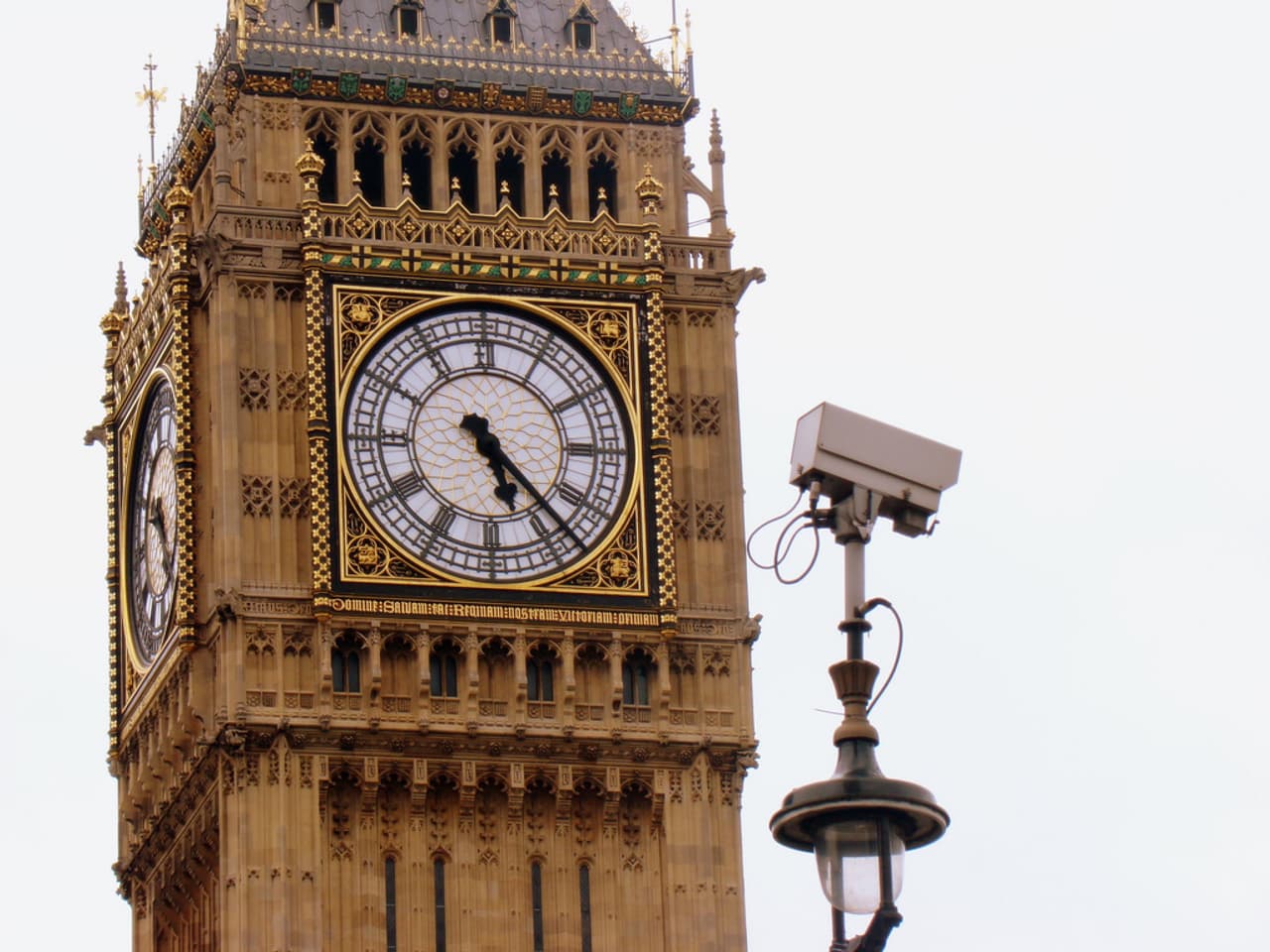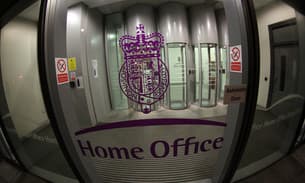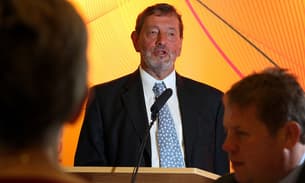
Surveillance: A thriving British industry
Spying in Britain
The country that created James Bond also produces some of the best spying technology – and the capabilities of this technology exceeds anything Bond’s gadget master Q could dream up.
Britain’s surveillance industry is thriving. But this is thanks in part to sales of products that have ended up being used by regimes with questionable human rights records, such as Iran, Indonesia, Mubarak’s Egypt, Saudi Arabia and even Syria.
The WikiLeaks and Privacy International ‘Spy Files’ offer a glimpse into some of these companies and the technologies they have offered to provide.
Gamma Group
The files reveal that technology from Hampshire-based Gamma Group was found in Egypt, having been sold to Mubarak’s government by a third party.
The company sells a system, FinFisher IT Intrusion, which can be inserted into a target’s computer by disguising itself as an email attachment or a fake software update. Once installed, it offers complete access to a target’s files and computer activities: the user can even activate the computer’s webcam and microphone to watch their target using their computer.
The system allows a ‘government agency to remotely infect target systems’ and ‘take control of the target’.
Gamma Group said: ‘Gamma’s Finfisher is a vital tool for police and security services in combating organised crime, insurgency, terrorism, people trafficking and paedophilia. Gamma complies with UK legislation and UK export controls. Gamma did not supply FinFisher to the [Egyptian] government.’
Telesoft Technologies
Based in Dorset, Telesoft Technologies specialises in ‘massive intercept’ monitoring, which can capture vast amounts of data.
Its brochure states it can offer ‘targeted or mass capture of tens of thousands of simultaneous conversations from fixed or cellular networks’ and its internet systems can monitor ‘up to 100% of subscribers‘. The company has ‘250 providers in 100 countries’.
Effectively, Telesoft installs hardware equipment that can tap into networks to intercept communications on a network-wide scale. This, coupled with the analysis tools provided by companies like ThorpeGlen, provides the ‘complete surveillance package’ according to Eric King of Privacy International.
QinetiQ
Formerly part of the Ministry of Defence, QinetiQ manufactures cyber security products. Its website states: ‘Commercial organisations, national infrastructure utilities and government agencies have always had to protect themselves against crime, insider threats, terrorism and espionage.
‘But now that the attack vector of choice for criminal, terrorist or espionage activities is increasingly the pervasive environment of cyber space, they can no longer take an unbalanced approach to protecting themselves’.
In February this year QinetiQ was part of a trade delegation to Kuwait led by David Cameron, along with defence contractors BAE Systems and Thales UK. Cameron was criticised for leading the delegation during a period of unrest in the region.
Cobham
Another Queen’s Award recipient, Hampshire-based Cobham offers a system capable of identifying and tracking a target through their mobile phone signal.
The company has four divisions employing over 12,000 people on five continents, with customers and partners in more than 100 countries and annual revenue of £1.4bn.
It offers advanced surveillance technologies. Company literature shows its products can allow an agent to lock onto a target’s mobile phone and activate a ‘silent’ call to keep the device ‘under their control’, or continually in their sights.
With the tag-line ‘The most important thing we build is trust’, Cobham provides specialist communications, security and surveillance products to 18 armed forces and more than 140 agencies globally.
Detica
Part of Britain’s largest defence contractor, BAE Systems, Detica describes itself as ‘a leading specialist in data collection and analytics, situational awareness and decision-support, and secure communication’.
The company says it aims to ‘help customers strengthen borders and safeguard transportation systems, improve cyber security, and combat terrorism and organised crime’.
‘The internet is a platform for new crime. The Internet can be a platform for new crime-fighting’
Detica
As an example of the distinctive strength of this cross-company approach, a BAE Systems team, led by Detica, was selected recently by the Home Office to deliver a demonstrator programme to trial new technologies for protecting crowded places.
The firm has been promoted by UK Trade & Investment (UKTI) at the HOSDB conference in 2011 and in UKTI’s UK Security Industry brochure.
Detica’s product ‘NetReveal’ allows for ‘rapid analysis of significant volumes of unstructured or semi-structured documents’.
The company was also behind the 2008 Intercept Modernisation Program (IMP), a UK government initiative to extend the government’s capability for intercepting and storing communications data.
The proposal included the collection of data on phonecalls, emails, web browsings and chatroom discussions.
At the time, Liberal Democrat home affairs spokesman Chris Huhne said: ‘The government’s Orwellian plans for a vast database of our private communications are deeply worrying.’ The Home Office denied reports that a prototype of the IMP had already been built.
Despite widespread opposition from privacy campaigners, it was reported that the coalition government would revive the IMP in the Strategic Defence and Security Review.
On November 21, Lord Alton of Liverpool questioned whether the British government had introduced Detica to the previous government of Tunisia and whether surveillance technology was being sold there.
Baroness Wilcox, under-secretary for the Department of Business, Innovation and Skills replied: ‘Detica does not, under the UK export control regime as it stands, need permission to export this kind of equipment. Because no permission is required, the Government therefore have no information on what has been sold to the Government of Tunisia by Detica.’
Datong
Datong provides mobile intelligence and signals intelligence abroad, including ‘IMSI catchers’ – a technology that is able to remotely track mobile phones. In October, the Guardian reported that the Metropolitan Police has bought equipment from Datong.
The company’s brochures state that it can store the details of ‘millions’ of mobile phones.
Datong already sells its technology to the US government departments, and its website advertises partners in countries including Bangladesh, Colombia, Indonesia, Malaysia, Mexico, Thailand and Vietnam.
Sophos
With over 1,500 employees and turnover of almost £190m last year, Sophos is an established player in the UK’s computer security industry – so much so that UKTI trumpets it as one of the country’s ‘leading technology companies’. From its base in a business park outside Oxford, it offers corporate IT security, including antivirus systems, encryption and web and spam filtering.
But like many of the companies in our database, these same technologies can potentially be put to more sinister uses if they fall into the wrong hands. So a system that could alert a company if one of its employees is downloading porn could also tell a despot if his citizens are searching for pro-democracy websites.
In 2009, Sophos acquired a German computer-security company, Utimaco – whose hardware Bloomberg discovered in Syria in November, seemingly helping President Assad crack down on dissidents in a conflict that has already claimed 3,500 lives.
Sophos told the Bureau and Newsnight that an Italian company, Area, was responsible for its technology getting into Syria.
‘Utimaco is not aware of any Syria project involving our equipment and rarely knows where partners install it,’ the company said. ‘We wouldn’t need to know, because it’s not the duty of any of our end partners to tell us. We don’t sell direct.’
Hidden Technology
From a business park in Rainham, Essex, Hidden Technology Systems International (HTSI) sells products its marketing director Chris Nyland has described as ‘very niche’, but which have won it clients around the world. In a case study outlining how a UK government body, UKTI had helped Hidden Technology sell to Saudi Arabia’s police force, Nyland said the company sells to ’27 countries around the world’, including the US, Middle East and Italy.
The company’s brochures claim its advanced covert tracking devices must be planted on a target – for example in their car – and can then report on their location anywhere in the world for up to six months at a time.
Hidden Technology Solutions confirmed it has supplied the tracking technology it designs and manufactures to Saudi Arabia. It says it is recognised as one of the best in this field.
Creativity Software
Surrey-based Creativity Software sells software that allows mobile phone operators to track the geographical location of individual phones for targeted ‘services’.
The company sold Irancell, a mobile phone company that is majority-controlled by Iranian government entities, a system that allows it to track a target’s movements every 15 seconds and plot the locations on a map, according to a 19-page company brochure uncovered by Bloomberg in October.
The company defended the sale, saying it has done nothing wrong. ‘We would like to reiterate that Creativity Software has deployed commercial location based services with MTN Irancell and nothing more…. For the avoidance of doubt, Creativity Software opposes any form of repression and strongly disapproves of the use of technology in violation of human rights.’
MMC Ventures, a shareholder in the company, helped to fund the private office of William Hague when he was in opposition between 2006-09, the Telegraph reported last month.




